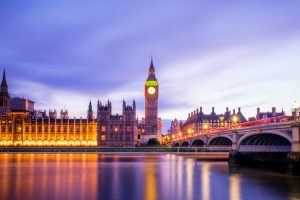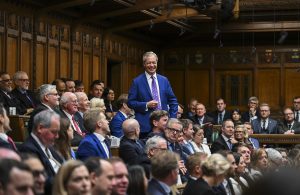The UK Government has faced its fourteenth defeat[1] as the House of Lords voted down proposals that would have weakened copyright laws, raising concerns about the unchecked power of artificial intelligence firms. But what does this mean for the creative industries, and why is this decision so significant?
What were the proposed changes to copyright laws?
The Government sought to introduce an exception to copyright law that would allow artificial intelligence companies to engage in text and data mining without the explicit permission of content creators. This proposal sparked fears that tech firms would be granted free rein to extract valuable content from British newspapers and other creative sources, undermining the intellectual property rights of creators.[2]
How did the Lords respond to the Government’s proposal?
In a decisive vote of 145 to 126, peers backed amendments to the Data (Use and Access) Bill designed to uphold copyright protections for British creators. Lord Black, deputy chairman of Telegraph Media Group, strongly opposed the Government’s plans, warning that democracy itself could suffer if AI firms were allowed to exploit journalistic content without regulation.[3]
Why is copyright protection critical for journalism and media?
Lord Black stressed that an effective copyright regime is the foundation of quality journalism. Without it, he argued, newspapers would struggle to invest in investigative reporting, which plays a crucial role in holding power to account. He warned that without proper transparency, control, and fair compensation for content creators, the UK media industry could collapse under the weight of misinformation and clickbait.[4]
Why are creators concerned about AI and copyright?
Prominent figures in the creative industry, including Sir Paul McCartney and Sir Elton John, have expressed apprehension that the proposed changes could allow AI developers to exploit artists’ work without proper authorisation or compensation. They argue that such policies could undermine the economic stability of creators and discourage future artistic endeavours.[5]
What are industry leaders saying about this vote?
Owen Meredith, Chief Executive of the News Media Association, praised the Lords’ decision as a strong message to the Government and tech firms alike. He emphasised that weakening the UK’s ‘gold standard’ copyright regime would be a mistake, and urged ministers to engage with rights holders in the creative sector to protect their interests as the Bill moves to the House of Commons.[6]
Are AI firms engaging in content theft?
Viscount Colville, a television producer and director, highlighted what he described as a history of ‘piracy and theft’ by tech companies against British content creators. Similarly, Baroness Kidron warned against a forced dependence on AI firms, cautioning that the Government’s current stance effectively permits large-scale intellectual property theft.[7]
What happens next?
As the Data (Use and Access) Bill moves to the House of Commons, the Government faces increasing pressure to reconsider its stance. Creators and industry leaders are calling for stronger protections to ensure that AI firms do not exploit their work without fair compensation. The debate over AI and copyright is far from over, and its outcome will have lasting implications for the future of the UK’s creative industries.[8]
BREVIA CONSULTING PROVIDES STRAIGHTFORWARD POLITICAL ADVICE AND SUPPORT TO BUSINESSES AND ORGANISATIONS
Discover how Brevia can help you and your organisation by contacting the Brevia Team on 020 7091 1650 or contact@brevia.co.uk
[1] UK Parliament, Government defeats in the House of Lords, 30 January 2025, Link
[2] Department for Science, Innovation and Technology, Copyright and Artificial Intelligence, 17 December 2024, Link
[3] The Telegraph, Peers vote down proposals to weaken copyright laws in embarrassing defeat for Government, 28 January 2025, Link
[4] The Telegraph, Peers vote down proposals to weaken copyright laws in embarrassing defeat for Government, 28 January 2025, Link
[5] The Guardian, Elton John backs Paul McCartney in criticising proposed overhaul to UK copyright system, 27 January 2025, Link
[6] The Telegraph, Peers vote down proposals to weaken copyright laws in embarrassing defeat for Government, 28 January 2025, Link
[7] The Telegraph, Peers vote down proposals to weaken copyright laws in embarrassing defeat for Government, 28 January 2025, Link
[8] Music Business Worldwide, UK’s House of Lords votes to strengthen copyright protections in AI, dealing blow to Government’s plans, 29 January 2025, Link



